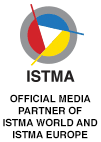Pfeiffer Vacuum welcomes 2015 Röntgen Prize Winner
07.11.2016
This year, the Justus Liebig University Giessen awards its Röntgen Prize to Dr. Eleftherios Goulielmakis. The Röntgen Prize is awarded each year in an academic award ceremony for outstanding work on basic research into radiation physics and radiation biology. It is named in memory of Wilhelm Conrad Röntgen, who was a professor in Giessen from 1879 until 1888.
This year, the Justus Liebig University Giessen awards its Röntgen Prize to Dr. Eleftherios Goulielmakis. The Röntgen Prize is awarded each year in an academic award ceremony for outstanding work on basic research into radiation physics and radiation biology. It is named in memory of Wilhelm Conrad Röntgen, who was a professor in Giessen from 1879 until 1888.

The main goal is to distinguish work by young scientists. Half of the € 15,000 prize is donated by Pfeiffer Vacuum and the Dr. Erich Pfeiffer Foundation, and the other half by the Ludwig Schunk Foundation. This year's award winner, Dr. Goulielmakis, is currently the head of the research group at the Max Planck Institute of Quantum Optics in Garching near Munich. He is receiving the award for outstanding contributions in the field of attosecond physics and technology with
soft X-rays. In 2005, Dr. Goulielmakis received his doctorate in physics from the Ludwig Maximilian University of Munich, with studies in attosecond physics. These studies formed the basis for his pioneering contributions in this field. After his doctoral thesis, he succeeded in measuring the shortest electromagnetic pulse so far of 8 x 10-17 s. This ultrashort light pulse allows the observation of electron dynamics in atoms and molecules in real time. For the first time, Dr. Goulielmakis and his team managed to fully characterize the motion of valence electrons
in ions in real time with an attosecond pulse (1 attosecond = 10-18 s) in the soft X-ray range. After that, Dr. Goulielmakis and his group developed a “light field synthesizer”, which can manipulate the waveform of a light pulse with attosecond precision. This opens up new methods for controlling electrons with light in the soft X-ray and extreme ultraviolet range with high temporal resolution. Furthermore, Dr. Goulielmakis and his team succeeded in accelerating electrons in solids with ultrafast laser fields, which for the first time allows a coherent emission of photons to be achieved in an extreme ultraviolet spectrum.
On the basis of these research results, ultrashort X-ray pulses can be generated using laser in a special vacuum tube. These pulses make it possible to observe extremely small structures and even, for example, allow electrons to be depicted.
Another application could be light-based circuits, which could increase the computational speed by a factor of 100,000 compared to current technology. The work of Dr. Goulielmakis contributes to the necessary fundamental understanding for enabling such light-based circuits to be developed in the first place.
Manfred Bender, CEO of Pfeiffer Vacuum Technology AG, congratulated the award winner: “Many research facilities have been a partner to Pfeiffer Vacuum for many years now. Our vacuum solutions are successfully used at the Max Planck Institute of Quantum Optics in Garching and we are therefore particularly pleased that Dr. Eleftherios Goulielmakis is this year's Röntgen Prize winner.” Bender explained further: “For 125 years now, Pfeiffer Vacuum has been setting standards in vacuum technology. The company looks back on a success story shaped by a pioneering spirit and passion, which contributed to the technological
progress of industry and science from the very beginning. Therefore, it is very important to us to promote cutting-edge research and, in particular, the next generation”.


































